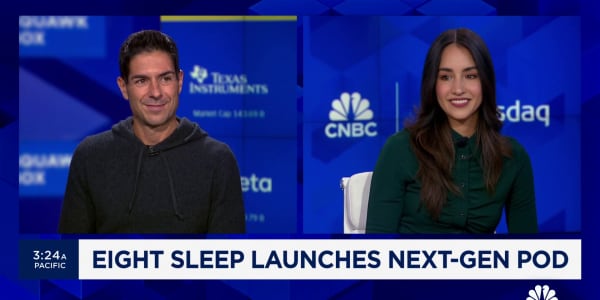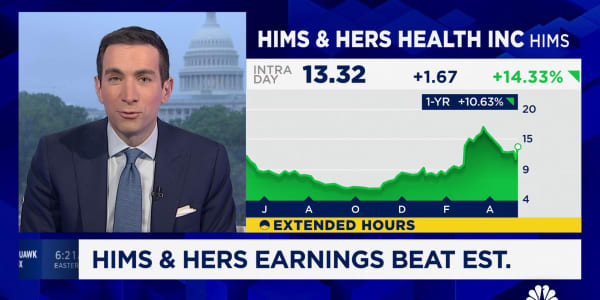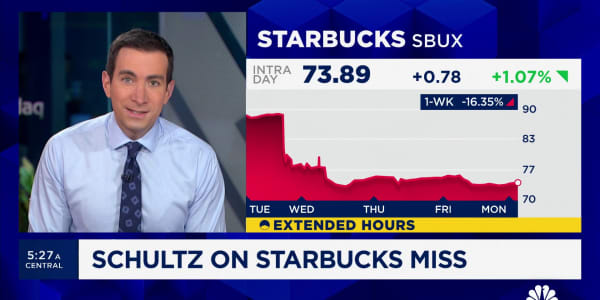Recapping the day's news and newsmakers through the lens of CNBC.
Notes:
Thursday's the big day—the Twitter IPO. If you'd like to grab some of those shares right at the starting gate. ... well, good luck. The investing pros will probably get them all. But that may be a blessing, as financial experts polled by CNBC suggested this initial offering, like many others, is pretty risky. Demand has been so high that the shares are likely to start trading at $27, up from the $23 to $25 range expected just days ago. All of the 20 financial advisors on the CNBC Digital Financial Advisor Council who were polled said they would not recommend the stock at that price. They cited the high risk of IPOs in general, and the growing competition Twitter faces in social media.
Quote:
"We're talking about a company that doesn't have income. They have revenues, but they don't have profits at this point."—Barry Glassman, president and CIO of Glassman Wealth Services
Cryptonite
Notes:
You know how it works in the movies: a thug comes in the shopkeeper's door and suggests the owner buy insurance against things like broken windows and burglaries. Well, now there's a high-tech protection racket: pay up to get back your infected files. A nasty bit of malware called CryptoLocker is infecting computers around the world. Unlike old-fashioned malware that just wrecks your data or freezes your machine, this one infects it with military-quality encryption. The computer keeps working normally, but you can't access your files—unless you pay a fee, typically $300 to $400. Any computer can be a target, business or personal. CryptoLocker typically arrives as an email attachment. The best safeguard is to backup files to a device or system not constantly connected to the computer.
Quote:
"The virus cleverly targeted … all of our family photos, including all photos of my children growing up over the last 8 years. I have a distraught wife who blames me!"—CryptoLocker victim
Sick kids, and cat days
Notes:
If you have kids, you know how nice it is to have a boss who accommodates your occasional need to slide out for a minor emergency. But if you're the boss, you know that family-friendly practices can undermine productivity, and generate ill will among the employees who have to take up the slack. Recently, it's become more common for childless workers to speak up to demand equal accommodation to outside needs, like training for a marathon or volunteering. But those workers sometimes face a "flexibility stigma" that assumes the boss thinks their outside needs are not as valid as family needs. The solution, some experts say, is to develop a flexibility policy that works the same for everyone—the childless worker who needs to get a cat to the vet and the parent summoned to a teacher conference.
Quote:
"What often happens is we get caught up in what I call the hierarchy of needs, where we start arguing [about] whose off-work activities are more important."—Kenneth Matos, Families and Work Institute
Labor dispute
Notes:
Just how big is the tech-skills gap, anyway? Firms in various industries, but especially IT, have long argued they have to hire foreign workers because there just aren't enough qualified Americans. But critics say visas for guest workers are often abused, used to justify hiring cheap foreign labor at the expense of American workers. Last week, Infosys, the Indian outsourcing firm, agreed to a $35 million settlement over government allegations it used fraud to obtain cheap visitor visas for workers rather than the more expensive worker visas.
Quote:
"[Using foreign workers] is an extraordinarily profitable business model, [with] more than 25 percent net margins, that is bad for American workers as well as the American economy."—Ron Hira, a public policy professor at the Rochester Institute of Technology
A billion here, a billion there
Notes:
How are things in the ionosphere? Well, among the fraction of a fraction of the one percent, things are just dandy, thank you. In fact, billionaires have seen their net worth more than double since the depths of the financial crisis in 2009, to $6.5 trillion from $3.1 trillion. And their ranks have grown by 810, to 2,170. Most are entrepreneurial men whose wealth comes from private companies. About 60 percent can be classified as self-made, while 20 percent inherited their wealth and 20 percent got a good start with inheritance. New York is the top city for billionaires, with 96 of them, and the U.S. is the top country, with 515, about three times the number in China, which is second. But for newly minted billionaires, look to Asia, where billionaire assets grew by nearly 13 percent over the past year.
—By Jeff Brown, Special to CNBC.com




